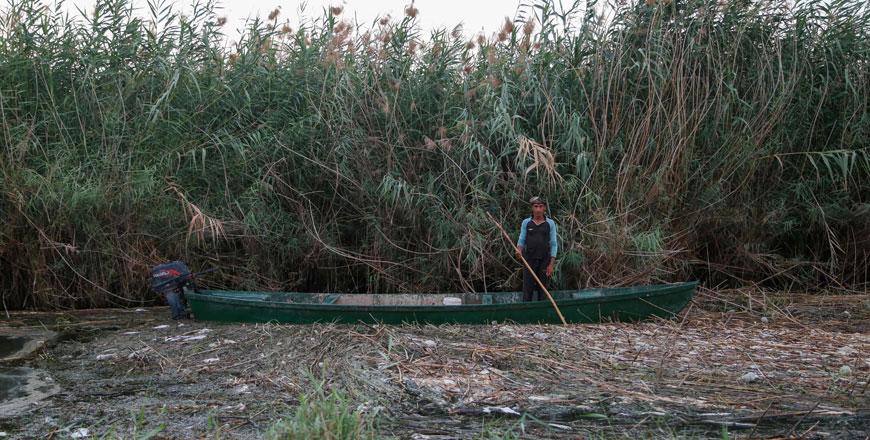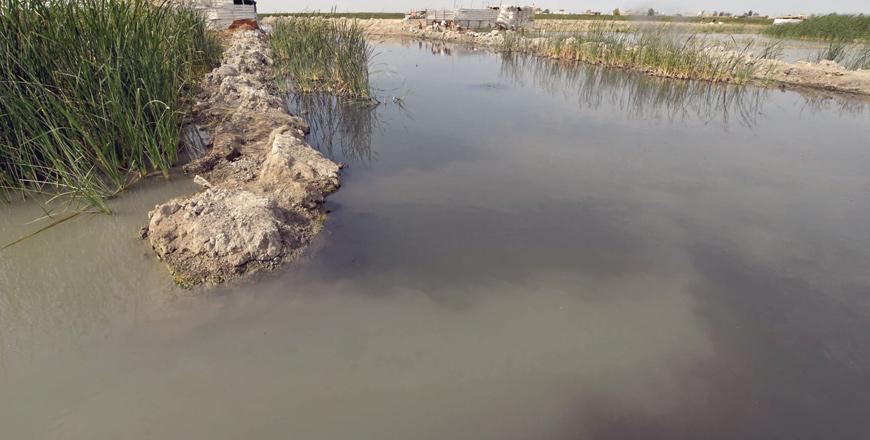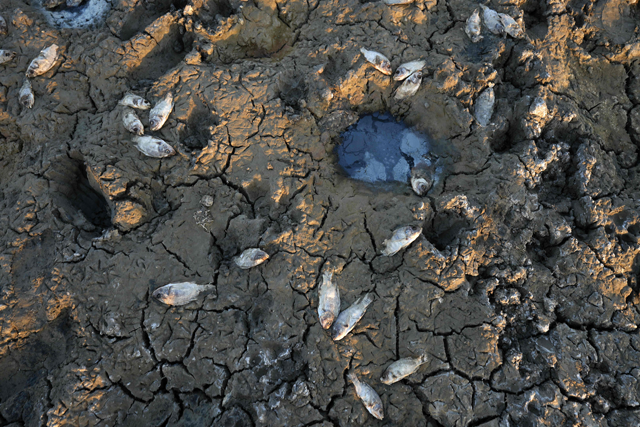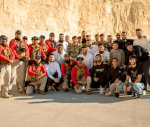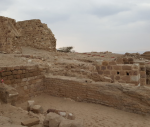You are here
‘Water is life’: unexpected rainfall revives Iraq's historic marshlands
By Reuters - Apr 24,2019 - Last updated at Apr 24,2019
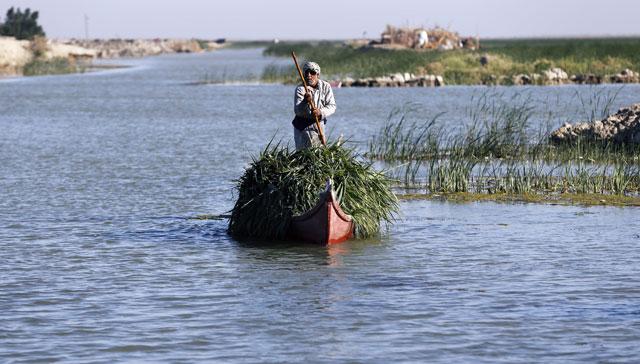
An Iraqi Marsh Arab paddles his boat as he collects reeds at the Chebayesh marsh in Dhi Qar province, Iraq, April 14 (Reuters photo)
CHIBAYISH MARSHES, Iraq — This time last year, most of Iraq's historic marshlands were dry, desiccated by upstream damming and a chronic lack of rainfall.
Now, local farmers are counting their blessings after unexpected heavy rainfall at the end of 2018 caused the dams to overflow by early January and water came gushing back to the wetlands in south-eastern Iraq.
For Yunus Khalil, a farmer raising water buffalo in the central marsh, the lack of water meant he had to sell most of his herd at a loss last year.
"We were terrified the water wouldn't come back," Khalil said. "It would've been the end for us."
The marshes, thought to be the biblical Garden of Eden and named a UNESCO world heritage site in 2016, are experiencing their highest water levels since they were reclaimed in 2003, said Jassim Al Asadi, southern director of local NGO Nature Iraq and a native of the marshlands, which stretch to the Iran border.
"God knows how much we suffered last year," Khalil said. "He protected us."
Saddam Hussein accused the area's inhabitants, the Marsh Arabs, of treachery during the 1980-1988 war with Iran and later drained the marshes — which before then had stretched across more than 9,583sq.km — to flush out rebels.
Many residents fled, but after Saddam's overthrow in 2003, parts of the marshland were reflooded and around 250,000 Marsh Arabs have cautiously trickled back.
Many had moved to farmland in nearby provinces, or went to live in exile in Iran. Their years away brought a change to the vibrant local culture, residents say, and more conservative norms, particularly regarding the role of women who have long worked alongside men in the marshes.
"You used to hear women singing as they pushed their boats through the marshes at dawn," said Taher Mehsin, a fishermen in his late 60s. "Now, some of the men won't let their women out of the house."
New problems
The area has been home to the Marsh Arabs for millennia, and water is essential to maintaining their way of life.
Though many were eager to return home after two decades away, life in the marshes is tough and revolves around fishing and raising water buffalo. The few schools and government-run health clinics are kilometres away from the open water, where many people live without electricity.
Residents have to make daily trips on long wooden boats to buy bottled water for themselves and their families — as the surrounding waters are too salty to drink.
Years of low water levels have caused other problems, including less tall grass for the buffalo to graze on, and a drop in the variety of fish.
The local carp, previously local fishermen's best seller, has not been seen in the waters here all year. Instead, the fishermen and women now catch just one type of small fish which most don't recall having seen until recently.
After casting their nets the previous night, they haul their take at dawn to local buyers, who are currently paying around $2.50 (3,000 dinars) a kilo after haggling — a 50 per cent drop in price compared to 2017.
"What else can we do?" said Mehsin as he pushed his boat out from the shore, having netted $10 (12,000 Iraqi dinars) for his day's take.
"Water is life here. Fish and animals can't live without it, and neither can we."
Related Articles
AL DELMAJ MARSHES, Iraq — Poisoned water, illegal dams and even armed clashes: these days, fishing for precious barbels in Iraq's majestic r
In a country where the state lacks the capacity to guarantee basic services, 70 per cent of Iraq's industrial waste is dumped directly into rivers or the sea, according to data compiled by the United Nations and academics.
CHIBAYISH, IRAQ — Mohammed Hamid Nour is only 23, but he is already nostalgic for how Iraq’s Mesopotamian marshes once were before drought d


